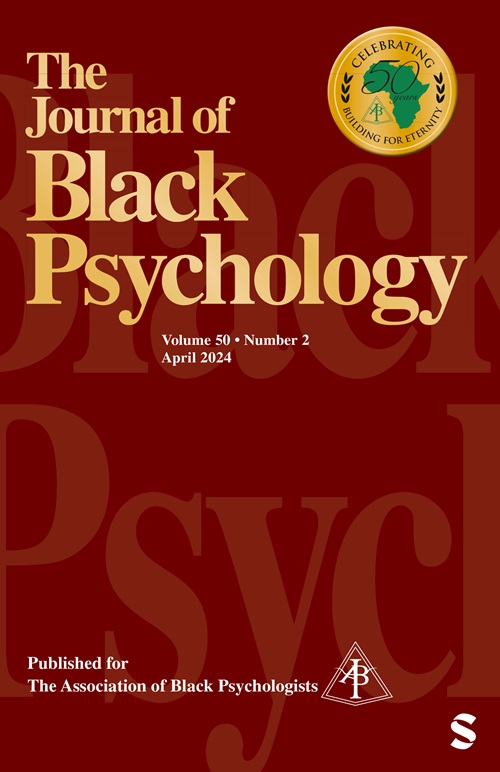寻求正义:黑人大学生种族主义支持的混合方法调查
IF 2.2
3区 心理学
Q2 PSYCHOLOGY, MULTIDISCIPLINARY
引用次数: 5
摘要
从理论上讲,社会支持是为了保护健康免受压力的负面影响。然而,关于社会支持是否能保护黑人的心理健康免受种族歧视的影响,研究结果好坏参半。目前的混合方法研究考察了种族主义特定支持(RSS)——在同种族(黑人/黑人)和跨种族(黑人/非黑人)友谊中对种族主义的社会支持。我们调查了31名黑人大学生(Mage = 19.7, SD = 1.70;(74%的女性)有(1)种族偏好。(2)当不同种族的朋友提供RSS时,他们对RSS的有用性的感知是否有所不同。参与者完成了与同种族和跨种族朋友的情感亲密度测量,并参加了讨论种族主义和RSS的焦点小组访谈。结果发现,与白人朋友相比,参与者对黑人朋友和有色人种的非黑人朋友的情感亲近程度更高。正如预测的那样,65%的参与者更喜欢来自黑人(相对于非黑人)朋友的RSS。参与者的定性回答(n = 21-24)显示,黑人(相对于非黑人)朋友被认为更能理解种族主义。这些发现表明,特别是来自黑人朋友的RSS可能有益于黑人大学生的心理健康。本文章由计算机程序翻译,如有差异,请以英文原文为准。
Seeking Just Us: A Mixed Methods Investigation of Racism-Specific Support Among Black College Students
Social support is theorized to protect health against the negative effects of stress. However, findings are mixed regarding whether social support protects Black people’s psychological well-being against racism. The current mixed methods study examined racism-specific support (RSS)—social support in response to racism—in same- (Black/Black) and cross-race (Black/non-Black) friendships. We investigated whether 31 Black college students (Mage = 19.7, SD = 1.70; 74% women) had (1) racial preferences (same-vs. cross-race) for whom they sought RSS, and (2) whether perceptions of RSS’s helpfulness differed when provided by cross-race friends. Participants completed measures of emotional closeness to same- and cross-race friends and participated in focus group interviews discussing racism and RSS. Results found participants reported more emotional closeness to Black friends and non-Black friends of color relative to White friends. As predicted, 65% of participants preferred RSS from Black (vs. non-Black) friends. Participants’ qualitative responses (n = 21–24) revealed Black (vs. non-Black) friends were perceived to better understand racism. These findings suggest RSS from Black friends, specifically, might benefit Black college students’ psychological well-being.
求助全文
通过发布文献求助,成功后即可免费获取论文全文。
去求助
来源期刊

Journal of Black Psychology
PSYCHOLOGY, MULTIDISCIPLINARY-
CiteScore
8.00
自引率
5.80%
发文量
22
期刊介绍:
The Journal of Black Psychology publishes scholarly contributions within the field of psychology toward the understanding of the experience and behavior of Black populations. This includes reports of empirical research and discussions of the current literature and of original theoretical analyses of data from research studies or programs. Therefore, the Journal publishes work in any of the areas of cognition, personality, social behavior, physiological functioning, child development, education, and clinical application, in addition to empirical research and original theoretical formulations outside traditional boundaries, all integrated by a focus on the domain of Black populations and the objective of scholarly contributions.
 求助内容:
求助内容: 应助结果提醒方式:
应助结果提醒方式:


